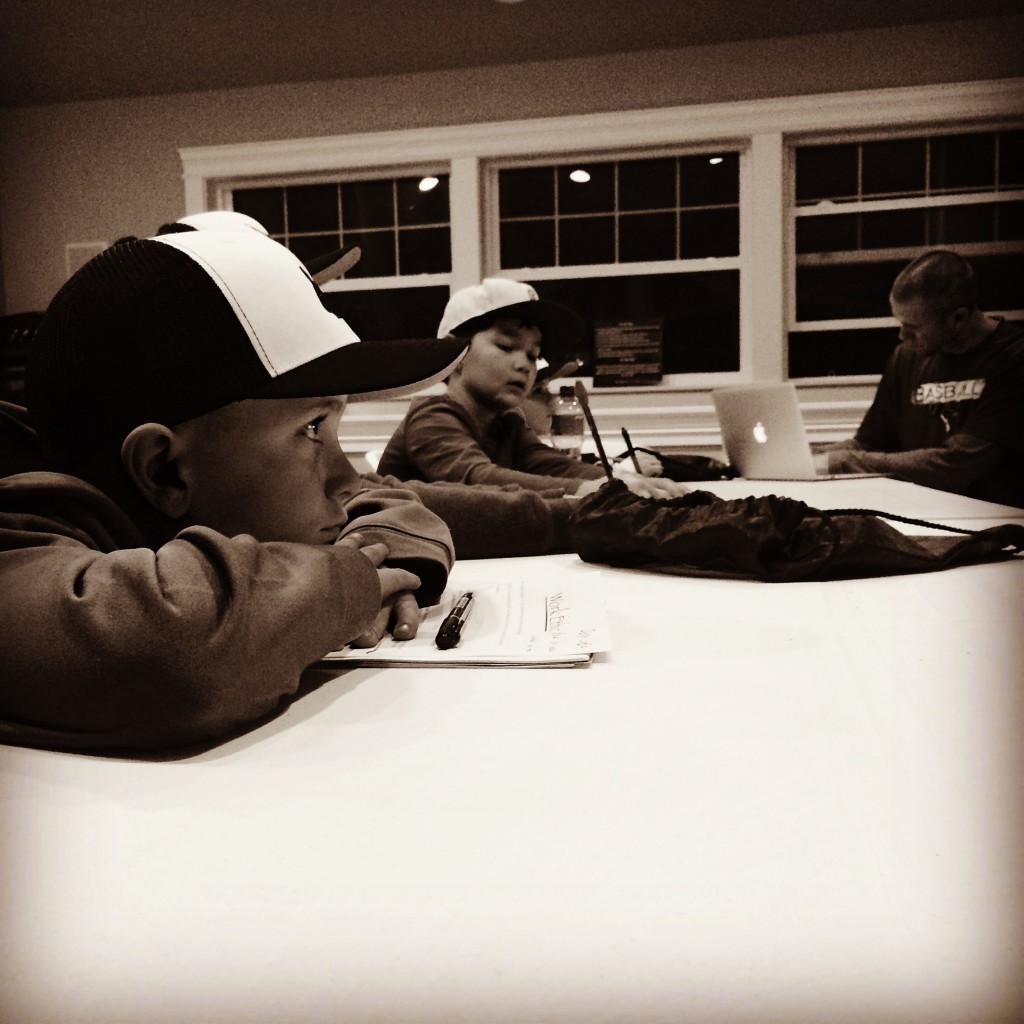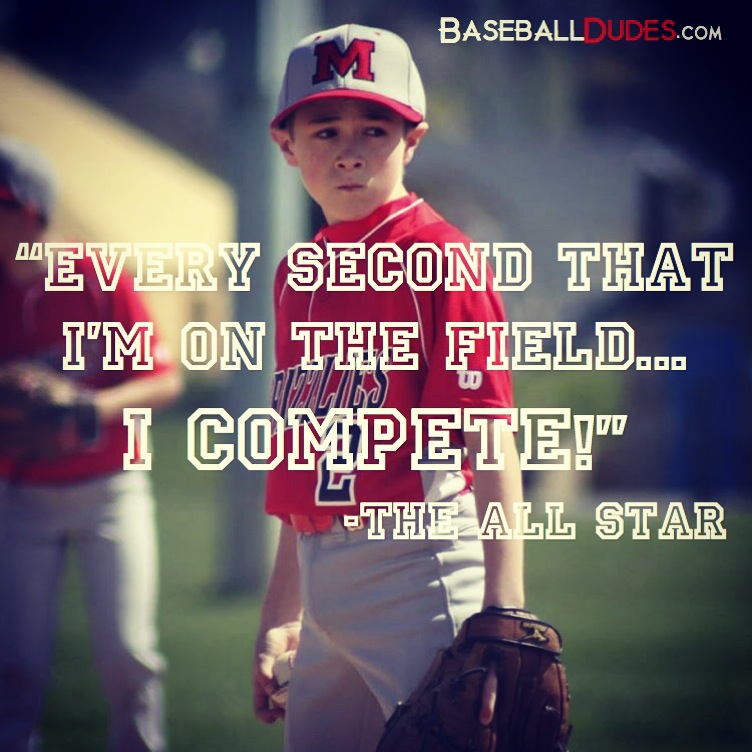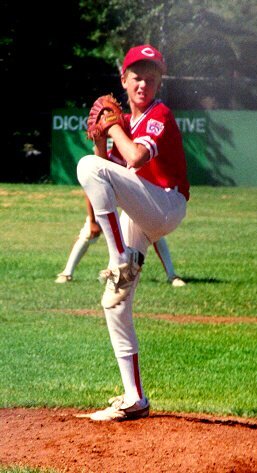
TRUTH…The chances of an amateur player becoming a Major Leaguer (Just because a player is drafted, it does not mean they are a Major Leaguer) are so slim. I’ve heard all sorts of odds but have no idea what is exact. Personally, I have seen some of the most talented players in the world fall victim to the quality of competition, the amount of players in professional baseball as talented as they are along with all of the politics that come with all youth and professional sports. As parents, we need to keep this all in perspective while supporting our Dudes in any way we can. Motivate them to be the best they can be while at the same time, not overdoing it when it comes to pushing them and/or providing them with opportunities.
Use this game to teach them about life. How to deal with other people. What dedication is. What it means to have a strong work ethic and how that will affect them, for better or worse, later in life. How to handle themselves properly in moments of adversity and the proper way to handle success (Be Humble!)
The number of years they will get to play this game will be so small compared to the number of years they live but the number of life lessons they can learn in those years is why this game is so great. If they have a great day, be proud of them and help keep them grounded and when they have a bad day, help them learn from it as they need to be able to accept the failures in baseball, and in life, if they want to grow.





 If you play this game long enough, you will most definitely experience failure over and over and over. I was blessed to play this game for a long time, briefly make it as far as you can, and experience some amazing highs and the lowest of lows. From MVP awards to not making it out of the first inning while giving up 6 runs and only getting one out!
If you play this game long enough, you will most definitely experience failure over and over and over. I was blessed to play this game for a long time, briefly make it as far as you can, and experience some amazing highs and the lowest of lows. From MVP awards to not making it out of the first inning while giving up 6 runs and only getting one out! BE SMART…Our PDP students will not pick up a baseball from October thru December. Somewhere along the line, the idea of throwing a baseball year round came about as a way to get ahead. Well…It’s Not! The arm needs a break. Time to heal up and give a player some time to play another sport, focus on the mental side of the game, focus on overall strength or just be a kid. I strongly recommend taking at least 2.5 months off of throwing, and 3 would be great!
BE SMART…Our PDP students will not pick up a baseball from October thru December. Somewhere along the line, the idea of throwing a baseball year round came about as a way to get ahead. Well…It’s Not! The arm needs a break. Time to heal up and give a player some time to play another sport, focus on the mental side of the game, focus on overall strength or just be a kid. I strongly recommend taking at least 2.5 months off of throwing, and 3 would be great!  For those that have followed us long enough, you know we preach, and teach, ways to respect the game and those around you. There’s a part of the youth game that I don’t quite understand when it comes to this. Allowing players to yell, from the dugout, things towards the opposing team, that are meant to distract and make them feel inadequate. This is not the way the game should be played. This is not respecting your opponents. This is not developing respectable young men but allowing them to bully in a controlled situation. In fact, these are the players who end up grown men, sitting in the stands at a professional game thinking it’s ok to yell at the players on the field.
For those that have followed us long enough, you know we preach, and teach, ways to respect the game and those around you. There’s a part of the youth game that I don’t quite understand when it comes to this. Allowing players to yell, from the dugout, things towards the opposing team, that are meant to distract and make them feel inadequate. This is not the way the game should be played. This is not respecting your opponents. This is not developing respectable young men but allowing them to bully in a controlled situation. In fact, these are the players who end up grown men, sitting in the stands at a professional game thinking it’s ok to yell at the players on the field.  Pitchers…Like I have said before, you need to realize how hard it is to hit a baseball. Besides that, there are a few other things that are in your favor. Here’s what I can think of…
Pitchers…Like I have said before, you need to realize how hard it is to hit a baseball. Besides that, there are a few other things that are in your favor. Here’s what I can think of… As a parent, my Dudes behavior is of the utmost importance. It is my responsibility as their leader to help them learn between what is right and what is wrong. From the way they speak to the way they carry themselves, I take it personal. With my kids all being so young, they, especially my 8 year old, are at a stage where they have a hard time deciphering between what is right and wrong, especially when they see their friends, who they look up to, act in certain ways. I don’t see or hear about everything but when I do, it’s my job as a responsible parent to set them straight. They may not like me at that moment, but that’s ok.
As a parent, my Dudes behavior is of the utmost importance. It is my responsibility as their leader to help them learn between what is right and what is wrong. From the way they speak to the way they carry themselves, I take it personal. With my kids all being so young, they, especially my 8 year old, are at a stage where they have a hard time deciphering between what is right and wrong, especially when they see their friends, who they look up to, act in certain ways. I don’t see or hear about everything but when I do, it’s my job as a responsible parent to set them straight. They may not like me at that moment, but that’s ok. 


 I talk a lot about not letting teachable moments pass. This may be the most important part of a coach’s job. If done, and done correctly, this is where coach’s will see the most growth in the players no matter if they are 5 or 25. It’s the small details in a delivery, swing or the game that, if corrected, will turn average and below average teams into winning teams.
I talk a lot about not letting teachable moments pass. This may be the most important part of a coach’s job. If done, and done correctly, this is where coach’s will see the most growth in the players no matter if they are 5 or 25. It’s the small details in a delivery, swing or the game that, if corrected, will turn average and below average teams into winning teams.  I am very fortunate to spend a every day around some of the best players and coaches in the world. Today I got to listen to one of our coaches explain, to one of our top prospects, what goals are, why they are important and how you should set them. Here you go…
I am very fortunate to spend a every day around some of the best players and coaches in the world. Today I got to listen to one of our coaches explain, to one of our top prospects, what goals are, why they are important and how you should set them. Here you go…


